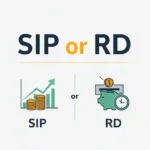Gold has always been in demand because it is stable and used as an inflation hedge. Whether a traditional investor or a new-age seeker of modern financial instruments, there are multiple ways to amplify wealth using gold.
Gold has become more accessible and diversified to invest in 2026. In fact, there are several options, ranging from simple to complex, and let’s find out the 7 best ways to invest in gold and how each method works.

Comparison of Gold Investment Options
| Investment Option | What It Involves | Best For | Liquidity |
|---|---|---|---|
| 1. Jewellery | Buying gold in the form of ornaments | Personal use and traditional investors | Moderate |
| 2. Solid Gold (Bars/Coins) | Purchasing physical gold in standardized forms | Long-term savings | High |
| 3. Gold Schemes | Investing in gold savings plans | Systematic investments | Moderate |
| 4. Digital Gold | Buying gold online and storing it digitally | Millennials and tech-savvy investors | High |
| 5. Sovereign Gold Bonds (SGBs) | Government-backed bonds linked to gold prices | Risk-averse investors seeking returns | Low |
| 6. Gold ETFs | Exchange-traded funds tracking gold prices | Stock market investors | High |
| 7. Gold FOFs | Mutual funds investing in gold ETFs | Diversification within mutual fund schemes | Moderate |
1. Jewellery
Jewellery is a traditional form of investing in gold, holding value in terms of emotional as well as monetary worth. Charges on making do, however, affect its investment value. Traditional investors and those looking for a mix of utility and value.
Why Choose It:
- Doubles as an asset and adornment.
- Easy to purchase from trusted jewellers.
Considerations:
- Making charges and GST reduce overall returns.
- Not ideal for short-term investments due to resale deductions.
2. Solid Gold (Biscuits/Bars/Coins)
The gold in the form of biscuits, bars, or coins is ensured to be highly pure and has minimal additional charges as compared to jewellery. Investors looking for tangible assets with minimal making charges.
Why Choose It:
- High liquidity and easy to store.
- Ideal for long-term wealth preservation.
Considerations:
- Storage costs for large quantities.
- Requires careful handling to maintain value.
3. Gold Schemes (Saving Instruments)
Gold schemes provided by jewellers help in systematic savings. This means you can save for gold over time. Individuals who want to buy gold in the future for personal or investment purposes.
Why Choose It:
- Disciplined savings with assured gold at maturity.
- Reduces the impact of fluctuating gold prices.
Considerations:
- Limited to specific jewellers.
- No interest or monetary growth until maturity.
4. Digital Gold
Digital gold allows for the purchase, storage, and sale of gold via the internet. It dispenses with the need to store physically but provides full liquidity. Tech-savvy millennials and those who crave convenience.
Why Choose It:
- Accessible through platforms like Paytm, Google Pay, and others.
- No risk of theft or storage hassles.
Considerations:
- Requires trust in digital platforms.
- May incur minor storage fees over time.
5. Sovereign Gold Bonds (SGBs)
SGB is a government-backed security under which you can invest in gold without holding it. They provide interest along with the appreciation in the value of gold. Risk-averse investors interested in steady returns and long-term investment.
Why Choose It:
- Annual interest of 2.5% on the invested amount.
- Exempt from capital gains tax if held until maturity.
Considerations:
- Locked-in period of 8 years (early redemption allowed after 5 years).
- Lower liquidity compared to other options.
6. Gold ETFs
Gold ETFs are traded in the stock market and hold gold investments. Stock market investors looking to invest in gold.
Why Choose It:
- High liquidity and easy to trade.
- No storage or theft risks.
Considerations:
- Requires a Demat account for trading.
- Subject to market volatility.
7. Gold FOFs (Funds of Funds)
Gold FOFs are mutual funds that invest in gold ETFs, giving indirect exposure to the prices of gold. Mutual fund investors looking to diversify their portfolios with gold.
Why Choose It:
- Suitable for those without a Demat account.
- Managed by professional fund managers.
Considerations:
- Fund management fees may reduce returns.
- Moderate liquidity compared to gold ETFs.
Why Should You Invest in Gold?
| Reason | Benefit |
|---|---|
| Hedge Against Inflation | Gold maintains its value over time, even during economic uncertainties. |
| Portfolio Diversification | Adds stability to your investment portfolio. |
| Liquidity | Gold can be easily converted into cash when needed. |
| Cultural Significance | In India, gold is a symbol of prosperity and security. |
Conclusion
Gold remains one of the safest and most secure options for an investment – and at the same time holds the promise of the prospect of growth. Whatever you prefer in the investment between the tangibility through the jewelry and coins to convenience through digital gold as well as ETFs is well addressed.
For long-term growth, it is best to go with Sovereign Gold Bonds or Gold ETFs. But if you want flexibility, nothing beats digital gold in convenience. Evaluate your financial goals, risk appetite, and investment timeline to decide the best method for you.
Invest in gold today to secure a bright financial future!
Learn More:
- Difference in Expense Ratio Between Direct and Regular Mutual Funds
- Best Small-Cap Index Funds
- 10 Debt Mutual Funds That Outperformed in the Last 1 Year with 10% to 24% Returns
- Best Mutual Funds for Senior Citizens
- Best Green Hydrogen Stocks in India
Frequently Asked Questions (FAQs)
What is the best way to invest in gold for beginners?
Digital gold and gold ETFs are beginner-friendly due to their simplicity and liquidity.
Are Sovereign Gold Bonds better than physical gold?
Yes, they offer interest in addition to gold price appreciation and tax benefits if held until maturity.
Is investing in jewellery a good idea?
Jewellery combines utility and investment, but high making charges reduce its returns.
Can I buy digital gold in small amounts?
Yes, digital gold allows investments as low as ₹1, making it highly accessible.
Do I need a Demat account to invest in gold ETFs?
Yes, a Demat account is required for trading gold ETFs on the stock market.











